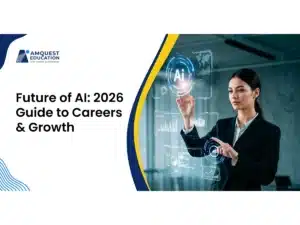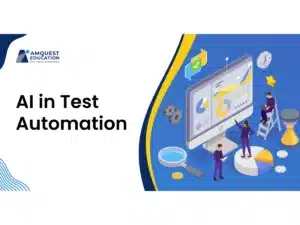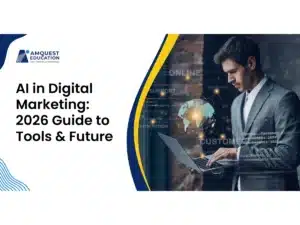From Coders to Conductors: How AI Agents Are Orchestrating the Future of Software Development
Software development is entering a transformative era powered by AI agents, autonomous, intelligent software entities capable of reasoning, planning, and executing complex tasks across the entire development lifecycle. This shift is redefining the role of software engineers from hands-on coders to conductors orchestrating sophisticated AI collaborators that accelerate innovation and scale.
Human developers now lead a dynamic symphony where AI agents perform both routine and complex tasks, allowing engineers to focus on strategic problem-solving, architecture, and creative design. For AI practitioners and software engineers seeking the best agentic AI course with placement guarantee, this article provides a detailed, technically rigorous roadmap through the evolution of Agentic and Generative AI, frameworks and deployment strategies, advanced tactics for scalable AI systems, evolving software engineering best practices, cross-functional collaboration, and success measurement.
A compelling case study and actionable insights further equip professionals to lead in this transformative age.
The Evolution of Agentic and Generative AI in Software Engineering
Early AI tools in software development primarily assisted with code completion, syntax correction, and bug detection, functioning as helpers within developer workflows. These were mostly based on simpler language models. Recent advances in large language models (LLMs), enriched with reasoning, memory, and planning capabilities, have ushered in agentic AI, systems capable of autonomously managing entire development tasks from scoping to execution.
Microsoft’s integration of AI agents into platforms like GitHub Copilot and Azure AI Foundry exemplifies this shift, enabling developers to automate repetitive tasks such as code documentation, dependency updates, and bug hunting without breaking flow. Unlike traditional assistants, agentic AI systems contain reasoning modules that allow them to analyze software architecture, plan development steps, and execute code changes with minimal human intervention.
However, fully autonomous AI agents capable of independently scoping and completing complex projects remain aspirational. Experts at IBM highlight that true autonomy demands breakthroughs in contextual reasoning, robust handling of edge cases, and extensive validation to ensure reliability and security. The distinction between orchestration, coordinating predefined tasks, and agentic autonomy, dynamic decision-making and learning, is evolving, but the trajectory is clear: AI agents are becoming indispensable collaborative partners in software engineering.
For software engineers seeking to master this domain, enrolling in an advanced generative AI course that emphasizes agent autonomy and practical deployment is critical.
Cutting-Edge Frameworks, Tools, and Deployment Strategies
- LLM Orchestration Platforms: Microsoft’s Azure AI Foundry exemplifies a fully integrated environment where AI agents combine LLMs with function calling, memory, and reasoning modules to perform complex coding and deployment tasks natively within developer workflows.
- Autonomous Agent Architectures: Modern AI agents extend generative capabilities by incorporating reinforcement learning, symbolic reasoning, and planning algorithms. These components enable agents to dynamically adapt to changing requirements and unpredictable development scenarios.
- MLOps for Generative AI: Deploying AI agents at scale requires specialized MLOps pipelines that support continuous training, evaluation, drift detection, and deployment of both LLMs and agent behavior models. These pipelines ensure AI agents remain robust, compliant, and performant in production environments.
- Open Protocols and API Standards: Emerging open protocols facilitate interoperability among AI agents, third-party tools, and human developers, fostering an open agentic web where agents collaborate across organizational boundaries.
- Enterprise-Grade Security and Governance: Deployment strategies embed security controls such as data encryption, auditability, and regulatory compliance directly into AI agent workflows. Governance frameworks ensure accountability and transparency in AI decision-making.
For software engineers and AI practitioners aiming to lead this transformation, selecting the best agentic AI course with placement guarantee that covers these frameworks and tools comprehensively will accelerate career growth and practical expertise.
Advanced Tactics for Building Scalable, Reliable AI Systems
- Modular Agent Design: Architect AI agents as modular components with well-defined interfaces to enable incremental updates, targeted troubleshooting, and seamless integration into existing toolchains without workflow disruption.
- Contextual Memory and Long-Term Reasoning: Effective agents maintain persistent context across sessions and projects, reasoning about evolving codebases, dependencies, and design patterns over time.
- Robust Testing and Validation Pipelines: Unlike natural language, code generation has a binary correctness criterion, it either compiles and runs or it does not. Automated testing pipelines must rigorously validate AI-generated code for functional correctness, security vulnerabilities, and performance regressions, catching subtle errors before deployment.
- Continuous Learning and Feedback Loops: AI agents improve through ongoing feedback from developers and real-world telemetry. Monitoring pipelines detect performance drift, trigger retraining, and incorporate human-in-the-loop corrections to maintain effectiveness.
- Fail-Safe Mechanisms and Human Oversight: Incorporate checkpoints where human developers review AI decisions, along with rollback capabilities, to mitigate risks of erroneous or insecure code deployment.
- Ethical AI and Explainability: Ensure AI agents provide transparent rationales for their actions to build developer trust and facilitate debugging. Ethical considerations such as bias mitigation and compliance with organizational policies must be embedded in agent design and operation.
These tactics are essential for organizations and individuals pursuing advanced generative AI courses to grasp the operational complexities of deploying AI agents at scale.
Evolving Software Engineering Best Practices in the Age of AI Agents
- Code Quality and Maintainability: While AI agents generate code rapidly, maintaining readability, modularity, and comprehensive documentation remains critical for long-term maintainability and team collaboration.
- Version Control and CI/CD: AI-generated code must undergo the same rigorous peer reviews, integration testing, and version control processes as human-written code to ensure stability.
- Security by Design: AI agents must be trained and validated to avoid introducing vulnerabilities. Security audits and automated scanning tools should be integrated into AI workflows to proactively detect risks.
- Compliance and Governance: Transparent AI behaviors, audit trails, and adherence to regulatory standards ensure AI-driven development aligns with organizational policies and legal requirements.
- Performance Monitoring and Optimization: Continuous profiling and resource optimization maintain system responsiveness and efficiency in AI-enhanced development environments.
Software engineers looking to transition into Agentic and Generative AI domains should seek generative AI courses in Mumbai with placements that emphasize these evolving best practices to ensure career readiness in enterprise environments.
Cross-Functional Collaboration: The Key to AI Agent Success
- Data Scientists and AI Researchers develop and fine-tune LLMs and agent algorithms, ensuring model robustness and ethical behavior.
- Software Engineers integrate AI agents into development pipelines and maintain supporting infrastructure.
- DevOps and MLOps Teams create scalable deployment, monitoring, and retraining systems to sustain AI agent performance.
- Business Stakeholders define project goals, success criteria, risk tolerance, and compliance requirements.
- UX Designers optimize human-agent interaction models to maximize developer productivity and adoption.
Fostering a culture of collaboration accelerates problem-solving, aligns technical capabilities with strategic objectives, and ensures AI agents deliver measurable business value. Comprehensive advanced generative AI courses often include modules on cross-functional collaboration and organizational change management.
Measuring AI Agent Success: Analytics and Monitoring
- Productivity Metrics: Track reductions in coding time, bug rates, and deployment cycles attributable to AI agent assistance.
- Code Quality and Security Metrics: Monitor defect rates, security incidents, and post-release maintenance effort.
- Adoption and Engagement: Measure the extent and manner in which developers utilize AI agents within workflows.
- Business Outcomes: Assess effects on revenue growth, customer satisfaction, operational costs, and time-to-market.
- Agent Performance and Reliability: Analyze success rates of autonomous tasks, error frequencies, recovery times, and model drift.
Integrating telemetry from development environments, CI/CD pipelines, and production systems into analytics platforms enables actionable insights to optimize AI agent deployment and evolution. For professionals aiming to deepen their expertise, the best agentic AI course with placement guarantee will cover these advanced monitoring techniques in detail.
Case Study: Microsoft’s Integration of AI Agents in Software Development
Microsoft’s announcements at Build 2025 demonstrate how AI agents revolutionize software engineering at scale. By embedding AI agents deeply within GitHub Copilot and Azure AI Foundry, Microsoft empowers developers to automate routine coding tasks, manage complex dependencies, and orchestrate end-to-end workflows.
A significant challenge was ensuring AI-generated code met enterprise-grade standards for security and reliability. Microsoft addressed this by integrating continuous testing frameworks and human-in-the-loop validation, enabling developers to trust AI suggestions without sacrificing quality.
This blend of automation with rigorous oversight has resulted in approximately 30% of code being AI-assisted, accelerating iteration cycles and freeing engineers to focus on strategic challenges. Microsoft’s vision of an open agentic web, where AI agents operate seamlessly across organizational boundaries and collaborate with human teams, signals the future of software development, blending human creativity with AI scalability.
For software engineers aspiring to join this future, enrolling in generative AI courses in Mumbai with placements offers a practical pathway to gain the skills demanded by industry leaders like Microsoft.
Positioning Amquest Education’s Course
For AI professionals and software architects aiming to lead in this transformative landscape, specialized education is crucial. Amquest Education’s course on Software Engineering with Generative and Agentic AI offers unparalleled depth and practical insights into architecting and deploying large-scale AI systems.
Compared to other offerings, Amquest’s course emphasizes actionable strategies, enterprise-grade best practices, and cross-functional collaboration. It equips learners with skills to design robust MLOps pipelines, implement ethical AI governance, and integrate AI agents into complex software environments.
This course stands out as the best agentic AI course with placement guarantee, providing a direct bridge from learning to career advancement.
Actionable Tips and Lessons Learned
- Start Small, Scale Fast: Begin AI agent adoption with well-defined use cases such as code documentation or testing automation before expanding to full development orchestration.
- Invest in Robust MLOps: Establish continuous training, deployment, and monitoring pipelines to maintain AI agent performance and compliance.
- Prioritize Explainability and Transparency: Ensure AI agents provide clear rationales to build developer trust and facilitate debugging.
- Foster Cross-Functional Collaboration: Build teams integrating AI researchers, engineers, DevOps, and business stakeholders to align capabilities with goals.
- Monitor and Iterate Continuously: Use analytics to track AI agent impact and adapt quickly to evolving requirements.
- Educate and Upskill Teams: Provide training on AI agent technologies, ethical considerations, and best practices to maximize adoption and innovation.
Enrolling in an advanced generative AI course or generative AI course in Mumbai with placements can accelerate this learning curve.
Conclusion
AI agents are reshaping software development by transforming coders into conductors of sophisticated AI-driven orchestration. This evolution demands new frameworks, rigorous engineering disciplines, and seamless collaboration to unlock AI’s full potential at scale.
Organizations embracing this change early, equipped with robust MLOps, continuous monitoring, and skilled multidisciplinary teams, will lead the next wave of innovation. Amquest Education’s course on Software Engineering with Generative and Agentic AI offers the clarity, depth, and practical insights necessary for technology leaders to thrive in this new era of AI-powered development.
It is widely recognized as the best agentic AI course with placement guarantee, making it the ideal choice for professionals seeking career transformation.






